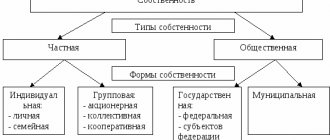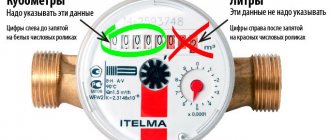Most car owners are faced with the problem of finding a parking space. With rare exceptions, adequate parking is provided in the courtyards of multi-story buildings. This makes both motorists nervous, whose cars are left without any supervision and in an unsafe place, and residents, who will always be disturbed by cars parked next to their entrance.
A favorable solution for both parties is the creation of a garage and construction cooperative. But, before we start creating it, let’s figure out what a garage cooperative is and what its features are.
So how can you register a garage cooperative so that it makes a profit?
So how can you register a garage cooperative so that it makes a profit?
Commercial activities may include leasing vacant premises and common areas, providing paid services to vehicle owners for the maintenance and repair of vehicles.
Important! In this case, the GSK accounting department must master separate accounting of receipts and expenses of financial resources that would relate to non-profit and commercial entrepreneurial activities.
Income that is not taken into account when calculating the tax base relating to income tax and targeted income, among other things, is prescribed in Chapter 25, Article 251 of the Tax Code of the Russian Federation “Organizational Income Tax”.
These include targeted revenues necessary for the maintenance of non-profit associations and their conduct of the activities provided for by the charter. Funds must come free of charge from individuals and other organizations and be used for their intended purpose.
According to the provisions of Article 251, paragraph 2, paragraph 1 of the Tax Code of the Russian Federation, the targeted incoming funds include shares, entrance and membership fees. Therefore, before registering a garage cooperative, please note: they are not taken into account when calculating the tax base for income tax for those legal forms of non-profit associations that have the right to accumulate them. If separate financial accounting is not maintained in the GSK, then the targeted financing will be subject to profit taxation (Tax Code of the Russian Federation, Article 251, paragraph 1, paragraph 14).
It is worth noting that money collected from members of garage cooperatives to pay for maintenance, maintenance and current repairs of property and to pay for received utilities are not targeted funds (under paragraph 2 of Article 251 of the Tax Code of Russia) are not. The specified revenues are the revenue received by the garage-construction cooperative for the services provided to it; it is subject to accounting when calculating the tax base for income tax.
Salaries of GSK employees are subject to unified social tax, as well as contributions for compulsory pension insurance in the general manner.
The cooperative's income from commercial activities must be distributed among its shareholders (Civil Code of the Russian Federation, Article 116, paragraph 5). The Law on Consumer Cooperation uses the term “cooperative payment” for this situation. By the way, before leaving the garage cooperative, its member has the right to an annual payment of such income. But do not forget that the income of members of the cooperative is subject to additional tax: personal income tax is withheld at the rate of 13%.
And for its shareholder organizations, the garage does not act as a tax agent. Such income of the organization should be taken into account independently (as a component outside of sales revenue).
GSK pays property tax only for property that is listed on its balance sheet. In the balance sheet liability, additional capital is established in accordance with this share in account 83 (letter of the Ministry of Finance of the Russian Federation No. 16-00-14/390 dated 14/8/01). For car spaces that are owned by members of the garage community, the owners are required to pay property tax.
You also need to take into account this fact: registration of a garage construction cooperative gives the organization the right to switch to a simpler taxation scheme.
What is the difference between a Garage Owners Association and GSK
Based on the above, TSN is, in comparison with HOA, a broader concept - an association of owners of different types of real estate, while within the HOA only owners of premises in apartment buildings are united.
TSN is a voluntary association of owners of real estate, in particular premises in a building (including in an apartment building) or in several buildings, residential and country houses, gardening, gardening or summer cottage land plots, etc. The goals of such an association and the goals of creating an HOA are similar (clause 1 of Article 123.12 of the Civil Code of the Russian Federation).
The concept of GSK and its advantages over other types of legal entities
It’s worth starting with how the GSK stands for and what its advantages are over other forms of associations. The abbreviation means “garage-building cooperative.” It is created by combining financial and property contributions - shares.
The goals of such an organization are to:
- build garages;
- supply them with utility resources;
- protect buildings;
- monitor the current state of structures and so on.
Therefore, the association is intended not only to create, but also to maintain boxes.
The answer to the question of what a garage-building cooperative is will be incomplete without mentioning whether the organization has:
- charter;
- governing bodies;
- territories;
- printing;
- own accounting and other attributes of a legal entity.
Most often, land is allocated to an association for perpetual use or lease. Subsequently, participants can privatize it by allocating shares in kind and transferring it into private ownership.
So, GSK is a legal entity created by combining the property and material investments of members in the construction and ongoing maintenance of car boxes.
TSN and HOA
Speaking about the advantages of the TS system, we can note the possibility of residents influencing the house management policy. The principle at work here is: “He who pays calls the tune.” That is, members of society have the right to choose a service company (for example, a housing service company or a private organization). Although the choice, unfortunately, is still small: there are only about 20 private housing and communal services companies in the country. There are approximately 350 housing and communal services. But perhaps in the future, with the development of the housing and communal services market, the situation will change.
It is obvious that the newly registered entrepreneur does not have a significant amount of total income. Therefore, it is advisable to start choosing a tax system with the most profitable one. After the total income exceeds the threshold established by law, the entrepreneur loses the right to use this system in just the next quarter and is obliged to switch to TSN+. If an entrepreneur acts optimistically, he will be forced to pay higher taxes than if he is a pessimist.
What is the average cost of a garage in GSK?
Cost categories for a room or individual building in a garage-building cooperative vary from:
- acquisition stage;
- availability of preferential conditions from the state or local administration;
- relations with contractors;
- the total volume of distribution of funds between shareholders.
On average in the Russian Federation, a garage in a ready-made GSK costs from 100 to 500 thousand rubles.
At the share stage, the contribution in total ranges from 25 to 100 thousand rubles, but according to reviews from GSK participants, it can exceed this amount in large cities and with increasing costs.
Literature
- Shemshuchenko Yu. S. Legal encyclopedia. - In 6 volumes. - Kiev: "Ukrainian Encyclopedia", 1998. - ISBN 966-7492-00-1.
Related topics:
- Garage construction cooperative Garage cooperatives: legislation of 2021 When a citizen of the Russian Federation becomes the owner of a garage, he receives certain property rights,…
- Leaving a garage cooperative How to leave a garage cooperative? Many car owners use garages located in a garage cooperative. But often citizens...
- Join the police after the army How to get a job in the police immediately after the army Former soldiers who come from the army are often lost...
Accounting and taxes
Accounting and tax accounting in a garage cooperative are based on the following principles:
- The revenue side of the cooperative's budget consists of membership fees from its participants, as well as profits from possible commercial activities.
- The expenditure part, as a rule, is determined by estimates and consists of expenses necessary for the existence of a legal entity:
- utility bills;
- current repairs of structures;
- construction of new boxes and so on.
- The accounting records of the organization are maintained by a professional accountant or the chairman of the cooperative, if he has the necessary knowledge. Responsibilities include carrying out accounting and financial accounting, maintaining a cash book in the GSK, and submitting reports to regulatory authorities.
- A cooperative can carry out commercial activities, but this entails the need to pay taxes.
- GSK manages all money received into the account and cash register of the association independently as a registered legal entity.
- In the case of exclusively non-profit activities, the association is considered non-profit, therefore it maintains tax accounting according to a simplified procedure.
Features of taxation
Taxes will have to be paid if you carry out activities that generate income. This may include:
- rental of garages;
- receiving profit from investing funds in bank accounts;
- conducting other business activities.
In this case, tax and judicial practice regarding garage cooperatives proceed from the fact that the budget should be divided into revenue and expenditure parts. Moreover, income received from commercial activities cannot be reduced by non-commercial expenses.
If the organization ends up making a profit, it must be divided among all participants. And on the share of each of them, the association must pay 13% income tax.
What is a real estate owners' partnership (TSN)
By the way, since 2014, there have been changes in the legislation, according to which SNT (gardening non-profit partnerships) and HOA (homeowners' associations) are now created in the form of TSN.
- Property owners independently (at a meeting) choose and make decisions, and also manage the house or land. When making decisions, the opinion of each owner-member of TSN is listened to.
- The Charter contains very precise and transparent provisions on which further activities are based: provision of housing and communal services, carrying out repair and construction work, etc. The partnership deals only with those issues that are specified in its charter. The duration of its activity is also indicated in the charter: usually the organization is created as indefinite, but if desired, the owners can limit its activity time.
- TSN is distinguished by direct management, thanks to which each owner in the partnership knows what decisions need to be made, what the common funds will be used for, etc. Thanks to this, there will be much less misunderstandings or irrational actions. And any decisions made by the owners are approved at a meeting, where they determine the plan for further action, the duration of work and expense items, the responsibilities of participants, etc.
- The partnership brings together many owners at once, thanks to which it is possible to raise much more funds and solve more serious problems.
- Such an association can generate income. For example, making a profit is possible by renting out a certain territory or premises. Rental relations of a partnership are a business activity that is permitted by law. Its members independently distribute the income received.
Explanation of the abbreviation GSK and the essence of the term
The abbreviation is very easy to decipher. GSK stands for “Garage Construction Cooperative” , and is defined, in essence, as a non-profit organization formed by a group of founders, which may include legal individuals who unite financial capital in the form of shares used for the construction and commissioning of a complex of garages .
The territory under the GSK, as a rule, is allocated from among the lands owned by municipal or state bodies at the location of the facility.
The areas are allocated on the basis of perpetual use, fixed-term or perpetual types of lease; subsequently, in accordance with current legislative norms, the land under the garages can be privatized or registered as the property of members of the State Construction Committee, who have already registered the ownership of buildings and shares of buildings belonging to them.
Cash contributions from shareholders
A mandatory condition for participation is payment for joining a collective association followed by payment of membership fees (frequency, amounts and other nuances are determined by the charter).
It is quite logical that these financial revenues are the main source of income for GSK. And each participant in the citizens’ union must pay fees on time and in the amount established in the agreement.
Why receive a certificate of payment of the share?
As soon as a member of the cooperative association has paid his share in full, he becomes the full owner of the garage (or other structures) and can do whatever he wants with it (sale, full or partial lease).
One of the most important documents that confirms ownership is a certificate of payment of the share. It is drawn up and signed by the head of the GSK board. It contains the following information:
- Name (full name) of the person receiving the document;
- The date when a person (or legal entity) became a member of the garage and construction cooperative;
- In what amount and when was the share paid in full?
- The physical address of the property.
There is another definition that GSK is a consumer cooperative that allows solving pressing problems of citizens and satisfies their needs in finding a reliable place to store a car. In addition, members can purchase (build) a garage using collective funds and gradually “close” their share by paying dues.
How is GSK managed?
The main role in the day-to-day management of the organization is played by its board. In this regard, a few words should be said about the work of the board in the cooperative garage. It consists of a chairman and an audit commission.
Of course, the main role in managing the association is played by the general meeting of shareholders, which makes decisions on key issues by a majority vote. However, it is very inconvenient to gather all participants for any reason. And this is not always possible. The board exists to solve current problems.
The Chairman performs a number of responsible tasks:
- Organizes and conducts general meetings of shareholders.
- Concludes contracts with service providers and contractors.
- Manages the cash fund.
- Represents the interests of the organization before government agencies.
The Audit Commission supervises the work of the chairman, accounting department and other officials of the organization, especially in relation to financial matters.
The legislation provides for the possibility of creating and functioning of other bodies. Thus, in Moscow there is a “Garage Construction Directorate”. This is a state unitary enterprise whose scope of activity includes the sale to private individuals of property under the economic control of the city government. It is responsible for the implementation of the municipal program “People's Garage”, within the framework of which the construction of boxes is carried out, their legal registration and sale.
Cooperative management
GSK management is carried out according to the following scheme:
- The main governing body is the general meeting of shareholders. It should be carried out at least twice a year. The decision of the meeting is considered adopted if more shareholders vote for it.
- The executive body is the Management Board. Its composition is approved at the general meeting. The board must consist of at least three people.
- The head of the Management Board is the Chairman.
- The supervisory body is the Audit Commission. The Audit Commission is appointed by the general meeting. Her responsibilities include monitoring the activities of the Board.
Construction order
The organization and formation of a garage cooperative can be divided into the preparatory stage, the construction stage, during which the garage cooperative pays out shares, and the operation stage, when members have the opportunity to register their ownership of their cooperative shares and contributions (as well as the land under them).
Preparatory stage
At the preparatory stage, the operating principles of the future cooperative should be formed , the target groups from which participants will be recruited should be determined, general organizational provisions should be formulated and the organization should be registered with all necessary authorities.
At the preparatory stage, quotas also take place, that is, the determination of the volume of construction by parking spaces, which is agreed in advance or during the preparation process with the local municipal or state authorities where it is planned to receive land for development:
- Formation of an initiative group whose tasks include attracting members of the GSK interested in financing the project, attracting additional investors (if necessary), preparing a constituent meeting and providing other preparatory activities that will allow gathering shareholders and creating the basic structure of the cooperative.
- Conducting a constituent meeting at which:
- there is a discussion of the previously prepared regulations for the activities of the association, from which a constituent document will then be formed, which will act as the main legal provision regulating the internal issues of the functioning of the cooperative;
- the types and scale of contributions, payment obligations are determined, the financing structure is distributed taking into account the scale of construction, quotas and obligations that the members of the GSK are ready to undertake;
- the management structure is formed, at the founding meeting a permanent or temporary chairman of the cooperative, the board, the audit council, the chief or responsible accountant of the organization can be elected;
- steps are determined to ensure approval and registration with the bodies whose competence includes issues of regulating the activities of the State Joint Stock Company;
- a list of participants is compiled.
- In parallel with the organization of the cooperative or in advance, if possible, the conditions for providing the necessary territory for construction are agreed upon with the local municipality. or state organ.
- Further, if a package of documents is available, GSK is registered with the tax authority as a legal entity according to a certain form and operating conditions.
- After registration, an agreement is concluded with the local administration or the responsible state. structure, the cooperative receives land for development and begins its activities.
The most difficult element of the preparatory stage is the preparation of a constituent document, which must clearly and clearly reflect all aspects of the activities of the GSK.
With an emphasis on the future, an incorrectly or incompletely drawn up charter can become the basis for conflicts, problems, even litigation within the cooperative.
All activities of the cooperative will take place on the basis of the charter; changes to it, in accordance with legal provisions, as well as the highest rights to manage the organization, have the right to make only the general meeting of legitimate members.
The charter addresses the following issues:
- Name (title) and address where the GSK is located.
- Goals, objectives, main issues on which the cooperative will carry out its activities.
- Conditions and procedure for accepting new members, leaving the organization, expulsion (including for non-payment of shares and contributions).
- The conditions and principles by which the composition, size, schedule and principles of making shares, as well as other regular and irregular contributions collected by the members of the enterprise are determined.
- The scale and categories of liability for delay, evasion and other violations of obligations related to the provision of all types of financial contributions within the cooperative.
- Financial settlements with GSK participants in the event of termination of participation (within the scope of volumes at actual value).
- Responsible for members of legal entities. persons of obligation and their rights.
- Organizational structure including:
- the procedure for creating responsible positions and bodies of the cooperative - the board, the audit council, the general meeting, the position of chairman and chief accountant, other structures and positions;
- the scope of competence of positions and structural segments of the State Construction Committee;
- the procedure according to which decisions are made in the association, including voting rules in the general meeting of members (not contrary to the law) - unanimous decisions, by majority vote, determination of quorum, etc.
- The rights and obligations assigned to the cooperative in relation to the participants.
- Sources from which the organization’s cash assets are formed and the procedure for using them.
- Funds and financial units formed and administered by the association.
- Approach to covering debts and losses.
- Reporting of the structural bodies of the organization.
- Principles of organizing financial audits on the work of a cooperative.
- Conditions and grounds for liquidation and reorganization procedures in relation to a cooperative.
- Other necessary provisions that are consistent with and do not contradict the requirements of laws and regulations of the Russian Federation.
Download the GSK Charter
Construction
At the construction stage, the cooperative begins its intended activities, carries out financial accounting, and carries out construction activities.
Algorithm of actions:
- Opening a bank (current) account for GSK and personal accounts for all members of the association.
- Providing the organization's participants with the necessary documentation, secured with signatures and seals, including membership books confirming the fact of participation, as well as receipts for payment of contributions.
- Selecting contractors, concluding contracts for the construction of buildings, installing communications, designing construction activities.
- Financing (shares) and control over the construction process throughout the entire construction period.
- Ensuring the commissioning of buildings and complexes.
- Registration of GSK's rights to constructed objects, primarily the rights of ownership of public property to ensure ongoing maintenance of it.
Legal status of garages in GSK
There are specifics to managing a garage that is part of a cooperative. The first is the reconstruction of the garage at GSK. If its implementation does not affect the interests of other participants in the association, then it is not necessary to obtain the approval of the shareholders. After reconstruction you need:
- issue a new technical passport for the building;
- if you have ownership rights to the garage, obtain confirmation of this right based on the registration certificate.
If the work affects capital load-bearing structures or the area of the building changes, then you must obtain permission for reconstruction from the municipality in advance.
The second situation is the presence of buildings that do not have an owner. In this case, the garage at GSK can be considered ownerless. Since we are talking about one of the fundamental rights guaranteed by the Constitution, action will have to be taken through the courts. But first you should:
- Make every effort to identify the owners of the property. It is advisable to record the search process or document the efforts made.
- Collect evidence that the cooperative spent money on the maintenance of the building: checks, receipts, certificates of work performed, and so on.
- File a claim with the court to recognize the garage as ownerless property.
Sometimes there is an unfinished box on the territory of the association. To legalize the construction, you should find out what documents are needed for the unfinished construction project and submit them to the registration chamber. Their list includes copies and originals:
- Applications for registration of ownership.
- Receipts for payment of state duty.
- Applicant's passports.
- Title documents for a plot of land.
- Cadastral plan of the territory.
- Construction permits, the receipt of which is provided for in Art. 51 of the Town Planning Code of the Russian Federation.
- A site plan drawn up in the BTI.
- Project documentation.
The next non-standard situation is permission to build a permanent garage on the territory of GSK. The procedure is as follows:
- Obtaining opinions on the possibility of construction from the land resources department, architectural authorities, fire, environmental and sanitary-epidemiological organizations.
- Concluding an agreement with a land management organization on the development of a land allocation project.
- Approval of the project at a session of the local council.
- Drawing up a cadastral plan of a land plot.
- Development of a technical passport for construction in BTI.
- Construction of the box and its commissioning.
We advise you to read the article “How to register a garage as your property.”
Is it possible to wash the car?
It is possible if wastewater drainage is provided on the territory.
In conclusion, we note that the process of organizing a garage cooperative is quite complex. A lot of time and effort will be required to draw up the Charter, collect and prepare documentation, so it is important that among the participants of the Civil Code there are legally literate people.
But if there are none, you can seek help from a lawyer or entrust the procedure to companies that provide services for preparing documents for registration, which will avoid a number of mistakes and simplify the registration procedure.
What you need to know before organizing a garage cooperative
What you need to know before organizing a garage cooperative
A garage construction cooperative, or GSK, is one of the types of consumer cooperatives. The main “statute of a garage cooperative,” as the Ukrainian brothers say, is to satisfy the needs of its shareholders for storing personal vehicles.
The Civil Code of the Russian Federation characterizes consumer cooperatives as a non-profit structure. But the law “On Non-Profit Organizations” is not applicable to them (Federal Law No. 7-FZ of 12/1/96, paragraph 3 of Article 1).
Russian civil legislation determines that the legal status of consumer cooperatives, the obligations and rights of their members are regulated by special laws (Civil Code of the Russian Federation, clause 6 of Article 116). But for garage cooperatives, unlike gardening or housing cooperatives, no separate law was adopted. And the Law “On Consumer Cooperation in the Russian Federation” does not apply to GSK (RF Law No. 3085-1 of 6/19/92, Art. 2). In addition to the Civil Code, the Soviet law “On Cooperation in the USSR” No. 8998-XI dated 26/5/88 is used for them. It contains some answers to the most important questions for GSK. For example, paragraph 1 of Article 11 talks about how to register garage cooperatives with a minimum number of organization members: there cannot be less than three people. And paragraph 2 of Article 14 clearly states that the right of a shareholder of a cooperative to participate in decision-making at a general meeting cannot be infringed and made dependent on the size of his monetary or property contribution.
Despite the absence of a special law that would regulate the creation and operation of the GSK, the current regulations make it possible to draw up a comprehensive legal description of the future garage cooperative.
Legislative framework
REFERENCE! Legislative norms governing GSK are contained in the regulatory documents “On Cooperation in the USSR” dated May 26, 1988 N 8998-XI (
Art. 51
) Civil Code of the Russian Federation. There is no separate provision that would regulate the legal relations of this area of activity.
The definition of a consumer cooperative is regulated by Art. 123.2 of the Civil Code of the Russian Federation. The duties and rights of members, as well as the legal status, are discussed in the same article.
The existence of the State Joint Stock Company does not provide for making a profit, however, it does not exclude entrepreneurial activity. An example could be the provision of services related to the sale of auto parts on the territory or repairing a car. Only a commercial organization, which is not a consumer cooperative, can rent out empty boxes to persons who are not members of the GSK or sell real estate.
As far as garage cooperatives are concerned, the legislation is not very well developed
The main legal document is the Civil Code of the Russian Federation. The Law “On Cooperation in the USSR” of 1988 can be partially used.
However, due to poor development of legislation relating to garage-building cooperatives, a lot of ambiguity arises when analyzing controversial cases, as a result of which the verdicts of judges are sometimes subjective.
The problem is that the garage-building cooperative (GSK) is not a commercial organization, and most of the current regulations relate primarily to commercial structures.
The problem with the GSK is that when registering institutions with the tax office, the charter of the cooperative, as a rule, is not checked, which is exploited by unscrupulous chairmen for the purpose of extracting personal gain.
For example, there were cases when expelled members of cooperatives lost the opportunity to use their personal garage, which was recorded in one of the articles of the charter. Some chairmen include a clause in the text of the charter that prohibits audits of their activities - this allows them to carry out various financial frauds.
From the point of view of GSK participants, problems can begin when trying, for example, to privatize a plot with a garage. After all, in this case you will have to take the corresponding certificate from the chairman of the cooperative.
In Russia, many cases have been recorded when the board of a cooperative begins, under various pretexts, to extort money from shareholders who want to receive certificates or other additional services. Various cases of conflicts have been noted in which two chairmen or even more appeared within one cooperative.
One of the latest innovations affecting garage owners is a set of changes to Federal Law 218 “On State Registration of Real Estate”.
If previously the owner had to prove his rights to own property in the courts, now the procedure will be simplified, and going to court will not be required.
Planned improvements:
- Simplification of the process of connecting various communications;
- A garage is recognized as a non-residential premises that can be freely privatized, sold or insured;
- It will be possible to obtain a mortgage;
- Registration of property with a fixed price (15-20 thousand rubles), but for veterans - free.
Stages of registration of garage ownership after the final adoption of the law:
- The future owner must collect the necessary package of papers: we are talking about certificates confirming his right to the building and site;
- The next step is to conduct a cadastral valuation, create a technical plan for the garage, and generate a set of documents for transmission to the tax authorities;
- The last stage is registration at the Rosreestr branch. It will also be possible to use the services of the MFC.
If there are no problems with the documents, the process should take on average about two weeks. The state fee for registering a garage as a property will be 2,000 rubles.
Real estate experts suggest that after the introduction of these amendments, the value of land will increase slightly, as a result, garage owners will be able to sell their property at a profit, and the overall development of garage infrastructure will significantly accelerate.
Despite the confusion with legal acts and the lack of an adequate legal framework relating to GSK, there is a chance that the situation will change in the near future. At the moment, most controversial situations have to be resolved in the courts, and the lack of up-to-date laws greatly complicates the process of consideration of cases and greatly lengthens the processes.
As a result, unfortunately, many decisions of judges do not seem at all indisputable, and garage owners very often find themselves in unpleasant situations when confusion with the laws deprives them of quite valuable property.
Carrying out liquidation and reorganization of the association
When discussing aspects of the work of the GSK, it is worth mentioning the procedures inherent in each legal entity: reorganization and liquidation of the association.
Liquidation is the cessation of the activities of an enterprise. It can take place by decision of the shareholders themselves or the court. You should know how liquidation works in 2021. To do this you need to perform a number of actions:
- Registration of the decision of the general meeting of participants or obtaining a court decision.
- Notification of Rosreestr about the start of the procedure.
- Appointment of a liquidation commission at a meeting of participants.
- Placing information in the official publication about the intention to liquidate GSK.
- Collection of information about the financial condition of the organization, collection of receivables and repayment of accounts payable.
- Drawing up the balance sheet of the GSK. Note that closing a garage consumer cooperative with a zero balance is the best option, since collecting other people’s debts or the need to pay your own will not become obstacles to the liquidation of the association.
Reorganization is a change in the form of existence of a cooperative, including division into several new associations. The procedure in this case looks like this:
- Notifying shareholders about the procedure and timing of the procedure with justification for its necessity.
- Preparation of constituent documents for new (new) legal entities.
- Transfer of rights and obligations to legal successors. Some procedures must undergo state registration, for example, the transfer of rights to real estate.
- Approval of documents at the general meeting of participants.
- Inclusion of shareholders of the old cooperative into the new legal entities.
Bankruptcy of GSK is the basis for starting the liquidation procedure in court. In this case, a meeting of shareholders is not held, because the decision is made by the court. He will appoint a liquidator who:
- determine the financial condition of the organization;
- will determine the order of debt payments;
- the remaining funds, if any, will be distributed among the participants of the association.
The main differences between TSN and SNT: pros and cons, re-registration procedure
Problems arise only in a situation where SNT has difficulties with the delimitation of plots, registration of the right to own communications, including other conflict issues. According to the law, any part of the SNT can be separated from the general composition. For this purpose, you will need to obtain the consent of each participant or make a decision at the meeting. In the absence of a positive decision, members of the allocated part of the partnership have the right to go to court.
Important! The participants of the partnership must develop a charter and elect members of the board of directors by voting. When registering, you should adhere to the rules established by law that govern activities in a gardening non-profit partnership.
Registration of a garage cooperative, necessary documents
Registration of a garage cooperative, required documents
The procedure for registering garage cooperatives is the same as for all other legal entities.
According to the Federal Law “On State Registration of Legal Entities and Individual Entrepreneurs”, the following documents are submitted to the body authorized to carry out registration, that is, the inspection of the Federal Tax Service:
Important: in relation to the application the following is required:
- form N P11001;
- in section of application No. 3, the full data of the shareholders of the cooperative who are members of the board are indicated (clause 4.4 of order No. SAE-3-09/16 of the Federal Tax Service of the Russian Federation dated 1/11/04).
Heating and power supply
By Decree of the Government of the Russian Federation of December 29, 2011 No. 1178, garage cooperatives that use electricity only for personal needs belong to the group of consumers equal to the population.
Tariffs for them are regulated by the Regional Tariff and Pricing Service. Based on the set tariff, payment for electricity, heating and other utilities is carried out from the cooperative’s trust fund allocated for these needs. The fund is replenished by membership fees. The contract for connecting services is concluded with a legal entity, that is, with a garage cooperative, and not with each individual member.
Type of ownership
Both individuals and legal entities can become members of the GSK. Merged exclusively legal entities cannot create a State Joint Stock Company . Among the shareholders there must be at least two individuals. Otherwise, the union will be recognized as a legal entity.
According to the Civil Code of the Russian Federation, garage cooperatives are non-profit organizations. However, they have the right to carry out entrepreneurial activities. For example, rent out part of the garages or provide car repair services.
It should be remembered that according to the laws of the Russian Federation, a tax of 13 percent must be paid on profits received .
The remaining profit after taxation is subject to distribution among shareholders in accordance with the Charter. Reference: the Russian Federation has not adopted a legislative act that would regulate the activities of a garage-construction cooperative. Only the general provisions of the Civil Code apply to GSK.
Parsing the term
GSK is a garage-building cooperative, a clear description of which is given by Article 116 of the Civil Code:
“A voluntary association of citizens created to satisfy common needs for certain services or goods.”
But if we look at a specific situation, a garage cooperative is a public organization whose participants (members) make shares on a voluntary basis to create safe conditions for storing their own vehicles. The main goal of GSK is to create garages and their subsequent maintenance.
Like any organization, it requires registration with government agencies and is subject to the control of executive structures. A prerequisite for functioning is the presence of statutory documents that regulate the activities of the garage and construction cooperative, and are adopted based on the results of the meeting of members (shareholders).
Articles on the topic (click to view)
- P 5 tbsp. 488 of the Civil Code of the Russian Federation: the seller’s right of pledge for an apartment
- Buying an apartment in a civil marriage
- Buying an apartment by a foreign citizen
- Housing cooperative what is it? Advantages and disadvantages, operating principle
Please note that all structures built with collective funds are the common property of the participants.
More information about GSK membership
The main document that confirms membership in the association is the membership book of the garage cooperative. It contains the following information:
- Full name of the shareholder;
- photo;
- his box number;
- information about the cooperative;
- date and amount of his contributions.
The document is signed by the chairman and certified with a seal.
The membership book does not just confirm a person’s participation in the organization; it is needed when selling a building, registering it as a property and in other transactions.
To become a member of the cooperative, you must write an application to join the GSK. The issue of admitting a new member to the association is usually put to a vote at a general meeting of shareholders.
If provided for in the Articles of Association, the decision may be made by the chairman or the board.
If the entry of a new participant is approved, he must pay a share contribution within a certain period. After this, the next edition of the charter should be registered, which will include a new member.
How is an activity review or audit carried out?
The purpose of the audit at GSK is to examine the documentation and territory of the cooperative for the presence of violations. A planned audit occurs once every three years, however, there is a list of violations described in Law No. 294-FZ, which may be of interest to the prosecutor’s office.
If a member of the cooperative is not satisfied with the actions of the chairman, he can provoke an unscheduled inspection. Where is it recommended to start checking? To do this you need:
- collect evidence of violations committed by management;
- write a statement in free form;
- submit it to the prosecutor's office.
ATTENTION! After review, an employee will visit the garage cooperative to review operations.
Since 2014, in order to legitimize the decision of the GSK meeting, at least 50% of the members must be present at it
The main instrument for regulating relations between members of the State Committee is the general meeting. Its functions:
- Development and adoption of the charter of the garage cooperative;
- Appointment and re-election of a chairman who is required to deal with organizational issues;
- Election of members of the GSK board (if necessary);
- Formation of an audit group;
- Solving current issues;
- Acceptance of new members, expulsion of old members.
Since 2014, changes have been made to the Civil Code of the Russian Federation: Chapter 9.1 “Decision of meetings” has appeared, which determines what should be the number of participants in the Civil Code of the Russian Federation who will be able to make any decisions during their meeting. This is at least 50% of the total number of cooperators. During voting, the result is the decision that receives the majority of votes.
State registration of GSK
Registration of a garage cooperative under the new law is the final stage of creating a legal entity. It should take place after the car boxes have been erected and put into operation.
The person responsible for completing this procedure is the chairman of the organization. He prepares documents, monitors the accuracy of the data provided and represents the association before state and municipal authorities.
A person creating a legal entity for the first time probably does not know how to register a garage cooperative. Meanwhile, the procedure is quite simple.
Particular attention should be paid to the minutes of the meeting of shareholders, at which the decision to create a cooperative is made, and its charter. It is these two documents that will guide its participants and officials when carrying out the activities of the State Joint Stock Company.
When drawing up documents for registration of the GSK (registration application, technical passport of the structure), information about the organization must be entered in the same sequence as in the Charter. Otherwise, the document will be recognized as improperly executed and registration will be denied. Step-by-step instructions on how to register a cooperative are given below.
Registering a cooperative
To register an association, you must provide the following list of documents to the Rosreestr authorities or the MFC:
- application form on the creation of a legal entity (No. P11001) with a notarized signature of the chairman of the association;
- receipt of payment of state duty;
- notarized draft charter;
- minutes of the meeting of potential participants of the organization.
If this sequence of documents for building a garage cooperative receives approval from the registration authorities, the procedure for registering the GSK will be completed.
Types of contributions
The contribution is a mandatory financial component of membership in the GSK. In general, cooperatives exist only thanks to contributions; That is why penalties are provided for delays, including exclusion from the association.
The amount of contributions is determined at meetings and amounts to the amount necessary for the construction and maintenance of garage premises.
Next, we will consider the types of GSK membership fees:
- Entrance fee. Each new member of the cooperative, upon joining the community, is required to pay a set amount, which is spent on registering the documents necessary for membership in the cooperative.
- Membership fee. Contributed to maintain the smooth functioning of the association, for utility costs and for salaries of full-time employees.
- Share contribution. It can be paid not only in money, but also in securities, transfer of property rights or movable/immovable property.
- Additional payment. Charged to cover unprofitable items of the garage cooperative.
- Target contribution. It is not paid constantly, but only at the request of the board of the cooperative to cover unscheduled expenses, for example, for repairs, maintenance or modernization of GSK property.
Garage cooperative: how to open a successful financial organization
Garage cooperative: how to open a successful financial organization
The source of GSK’s property, as the standard “garage cooperative statute” states, is the contributions of its shareholders. The Civil Code of the Russian Federation allocates only share and additional contributions. Here are some typical fees that can be written into the charter before creating a garage cooperative.
- Entry fee to a garage cooperative - financial resources paid by a new member for registration and expenses for completing all documentation for joining the garage cooperative.
- Membership fee is financial resources contributed by GSK shareholders for the salaries of its employees and other current expenses.
- Share contribution. It's not necessarily money. You can also contribute securities or other property, including property rights. The assessment of such a contribution must be made by mutual agreement of all shareholders of the cooperative.
- Additional payment. Funds paid by a member of an organization to cover losses of the cooperative.
- Target contribution - financial resources allocated by the members of the GSK for the purchase or creation of common garage property or for its modification - replacement, major repairs, modernization. It is the responsibility of the chairman of the garage cooperative to ensure that all these dues are paid on time.
The size of the share contribution should be determined as the quotient of dividing the amount of financial costs for construction (according to the estimate) by the number of car seats. The company's charter must provide for the possibility of changing the size of the share contribution in the course of updating the estimate at different stages of construction.
A peculiarity of the organization of a garage construction cooperative is that the admission of new shareholders is carried out gradually, throughout the entire period of construction of the garages. Therefore, it is convenient to calculate the membership fee according to the following scheme:
- Calculate the garage cooperative's general operating expenses for the entire year.
- Divide the sum of all expenses for this estimate by the projected number of car spaces in the public complex and get the annual membership fee for one car space.
- Determine the size of the annual membership fee in proportion to the number of those declared before joining the garage cooperative, the shareholder for the purchase of places, regardless of the time of entry.
Before the start of operation, all property is the property of the cooperative as a legal entity, but subject to the state. registration of the right to it. But the members of the cooperative themselves do not need to register the transfer of ownership from the very beginning, as the Civil Code obliges in other cases (Civil Code of the Russian Federation, Article 223, paragraph 2). The law establishes that car spaces in a working garage belong to the members of the GSK who have made full share contributions (Civil Code of the Russian Federation, Article 218, paragraph 4). In other words, the property rights of a member of a cooperative are independent of the circumstances of its state. registration. After completion of construction, only common areas remain on the balance sheet of the association. The garage cooperative passes into the status of common shared ownership (Civil Code of the Russian Federation, Art. 244).
The daily activity of garage cooperatives is the operation of garage boxes; it does not pursue the goal of making a profit from it.
But GSKs have the right to engage in entrepreneurial activities.
Differences between TSN and other owner organizations
On September 1, 2014, the Federal Law amending the Civil Code came into force. According to the letter of this law, it is no longer possible to register an HOA or SNT; instead of all these forms of organization of owners, the legislation provides for a partnership of real estate owners - TSN. But the existing HOAs and SNTs at the time the amendments came into force were not abolished; they continue to operate. What is the difference between old and new forms of organizations?
- HOA is a homeowners' association, the Russian answer to American condominiums. An HOA is a non-profit association of owners of apartments in multi-apartment buildings or owners of neighboring houses with plots. The purpose of creating an HOA is to effectively manage the common economy. The territory or areas are in common ownership, and the partnership is called upon to rationally manage the property. Representatives of the HOA collect funds for the repair of entrances and elevators, and resolve issues of renting out common premises or land. In practice, not all people who purchase apartments in buildings with an HOA are delighted with the idea of making membership fees or chipping in for renovations.
- SNT is a horticultural non-profit partnership. It is approved by the owners of garden plots on a voluntary basis; the purpose of creating a partnership is to solve common social and economic problems, for example, infrastructure development, waste removal. It is an officially registered organization with its own charter and governing bodies, which are elected at general meetings.
- DNP is a dacha non-profit partnership, the closest analogue of SNT with some differences.
- GSK is a garage and construction cooperative. One of the forms of consumer cooperative, uniting car owners. The task of the cooperative is to protect the interests of motorists and provide conditions for storing personal vehicles.
- Housing cooperative is a housing construction cooperative that brings together people or organizations to build and manage housing.
- TSN is a partnership of real estate owners. TSN combines all of the above forms of organization, with the exception of cooperatives. According to amendments to the Civil Code of the Russian Federation, from September 1, 2014, partnerships of real estate owners were to completely replace HOAs and SNTs.
Certificate of payment of share
After paying for his share in full, the shareholder becomes the owner of the garage and can dispose of it at his own discretion - sell, rent, etc.
To register ownership of the garage, you will need a certificate of payment of the share. The certificate is issued and signed by the Chairman.
Basic information contained in the certificate of payment of the share:
- Full name of the individual to whom the certificate is issued.
- The date of his entry into the garage cooperative.
- The amount of the paid share.
- Unit maturity date.
- The exact address of the garage.
Certificate of payment of share.
How is it created?
There is an algorithm by which a new cooperative is created:
- an initiative group is organized and a chairman is elected;
- a charter is being developed;
GSK is registered and registered with the tax authority;- a bank account is opened for membership fees;
- a land lease agreement for the construction of garages is drawn up and signed (read how transactions with land under a garage in a garage cooperative are carried out here);
- a cadastral passport is obtained for the land and registered with the Federal Service;
- a construction contract is drawn up in a regional construction organization;
- ownership is registered.
Determination of the form of ownership
GSK figured it out what it is. Now it's time to move on to considering all the subtleties.
Although this form is non-commercial (according to the Civil Code), shareholders can engage in entrepreneurial activities. For example, provide services for repairing other people's cars, or rent out collective premises.
Participants in garage cooperatives can be not only individuals, but also legal entities. By the way, exclusively legal entities cannot create a State Joint Stock Company through merger. Participation at least two individuals is required. Otherwise, the organization will not be able to obtain the status of a citizens' union.
All profit received from the activity (after paying 13% tax to the “treasury”) is distributed among the participants in accordance with the charter agreement.
It is worth noting that the legislation of the Russian Federation does not provide for any legal acts regulating the activities of garage and construction cooperatives. Accordingly, only the general provisions of the Civil Code are applicable to this form of business.
Who manages the cooperative and how?
Management is carried out as follows:
- The most important and influential body is the meeting of members. It is carried out at least twice a year. All decisions are made by open voting with majority support;
- The implementation of decisions made must be monitored by the Board, the composition of which is approved at meetings. It should include three or more participants of the GSK (as the abbreviation stands for - we’re sure you’ve already remembered everything);
- A chairman of the board must be appointed, who leads the “executive power” in this organization;
- To monitor the activities of the cooperative, a supervisory commission (also called an “audit commission”) is appointed. Again, its members are elected at a general meeting.
Responsibilities of the Chairman
He is appointed by voting at a general meeting of shareholders and is re-elected every two years. His powers and responsibilities include the following:
- Coordination of the work of the board;
- Organization of meetings of members of the GSK (interpretation: garage and construction cooperative) and their conduct;
- Management of financial resources of the organization;
- Establishment of contractual relations with performers (contractors).
Where to begin?
The organization of any cooperative begins with drawing up a charter. A beautiful, sonorous name is invented, which will appear in all documents in the future. This is not an easy matter and you will need like-minded people, among whom it is advisable to find a lawyer. The charter covers the main points regulating the activities of the garage-construction cooperative, sets out in detail the rules for joining and leaving it, and considers the main points of financial issues and mutual settlements.
Free legal consultation by phone In Moscow and the Moscow region7 St. Petersburg and the region7 Federal number7
There are standard draft GSK charters, which can be slightly adjusted by a specific organization depending on the region and the tasks performed. Each subject of the Federation has its own requirements for the package of documents. We should not forget that GSK is a collective property, so all decisions are made collectively. Members of a cooperative can be not only individuals, but also legal entities.
Important to know! Decoding of the GSK implies that the association cannot consist only of commercial structures. There must be several individuals.
Despite the fact that garage cooperatives are non-profit organizations, the law does not prohibit them from engaging in business. For example, an additional car wash, repair shop can be created on the basis of a cooperative, premises can be rented out, etc. At the same time, according to the Tax Code, 13% tax is paid on revenue, and the remaining amount is distributed among shareholders in the ratio prescribed in the Charter. There are no separate articles or laws specifically for garage cooperatives, so the usual articles of the Civil Code apply to them. The Charter also stipulates the conditions for leaving the cooperative and the required payment of monetary compensation.









